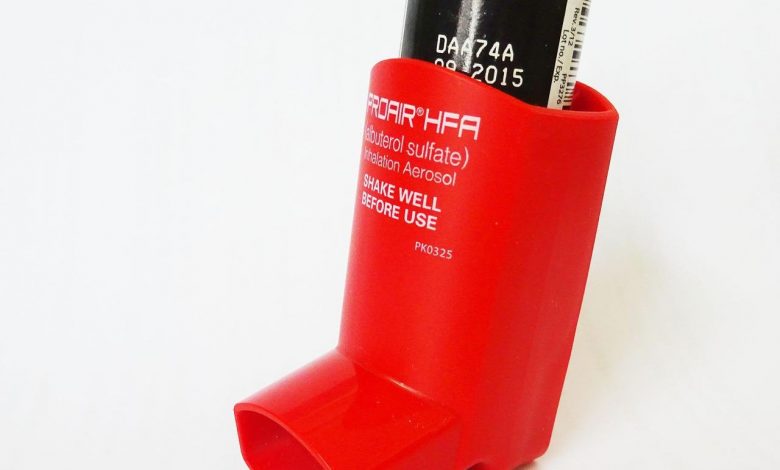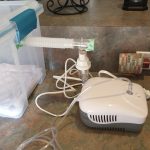Does Albuterol Cause QT Prolongation?

Long QT syndrome (LQTS) is a condition in which repolarization of the heart after a heartbeat is affected. It results in an increased risk of an irregular heartbeat which can result in fainting, drowning, seizures, or sudden death. Some people are born with a genetic mutation that causes long QT syndrome (congenital long QT syndrome). Long QT syndrome may also be caused by certain medications, mineral imbalances, or medical conditions (acquired long QT syndrome).
Many commonly used drugs can prolong the QT interval, especially if used in combination with other substances which affect their metabolism. Prolongation of the QT interval can cause life-threatening polymorphic ventricular tachycardia also known as torsade de pointes. Women and certain susceptible people are more prone to prolongation of the QT interval. This predisposition could be congenital or due to conditions such as hypokalaemia, hypomagnesaemia, renal failure, or cardiac failure. Susceptible patients need an electrocardiogram before and after starting drugs that can prolong the QT interval. If a drug prolongs the QT interval beyond normal limits, the benefits of continuing the drug should be weighed against the relatively rare risk of potentially life-threatening arrhythmias.
What is Albuterol?
Albuterol is a medication used to prevent and treat difficulty breathing, wheezing, shortness of breath, coughing, and chest tightness caused by lung diseases such as asthma and chronic obstructive pulmonary disease (COPD; a group of diseases that affect the lungs and airways). Albuterol inhalation aerosol and powder for oral inhalation is also used to prevent breathing difficulties during exercise.
Albuterol inhalation aerosol (Proair HFA, Proventil HFA, Ventolin HFA) is used in adults and children 4 years of age and older. Albuterol powder for oral inhalation (Proair Respiclick) is used in children 12 years of age and older. Albuterol solution for oral inhalation is used in adults and children 2 years of age and older.
Albuterol inhalation suspension is available as the brand-name drugs ProAir HFA, Ventolin HFA, and Proventil HFA. It’s also available as a generic drug. Generic drugs usually cost less. In some cases, they may not be available in every strength or form as the brand-name version. Outside the U.S., albuterol is referred to as salbutamol.
How Albuterol works
Albuterol is in a class of medications called b beta2-adrenergic agonist bronchodilators. It works by relaxing and opening air passages to the lungs to make breathing easier. Albuterol acts on beta-2 adrenergic receptors to relax the bronchial smooth muscle. It also inhibits the release of immediate hypersensitivity mediators from cells, especially mast cells. This drug helps to relax the airway muscles for up to 6–12 hours. This helps you breathe more easily.
Does Albuterol cause QT prolongation?
Yes, studies have shown that albuterol administration can result in significant QT prolongation and increased heart rate. People using albuterol should avoid grapefruit juice because it can increase the risk of QT prolongation by inhibiting the metabolism of the drug. Women are more susceptible than men to albuterol-induced QT prolongation. Renal failure, cardiac failure, and hepatic failure are also risk factors.
What are the other side effects of albuterol?
Albuterol inhalation may also cause other side effects. Tell your doctor if any of these symptoms are severe or do not go away:
• uncontrollable shaking of a part of the body
• nervousness
• headache
• nausea
• vomiting
• cough
• throat irritation
• muscle, bone, or back pain
Some side effects can be serious. If you experience any of the following symptoms, call your doctor immediately:
• fast, pounding, or irregular heartbeat
• chest pain
• rash
• hives
• itching
• swelling of the face, throat, tongue, lips, eyes, hands, feet, ankles, or lower legs
• increased difficulty breathing
• difficulty swallowing
• hoarseness
Albuterol inhalation may cause other side effects. Call your doctor if you have any unusual problems while using this medication.
If you experience a serious side effect, you or your doctor may send a report to the Food and Drug Administration’s (FDA) MedWatch Adverse Event Reporting program online (http://www.fda.gov/Safety/MedWatch) or by phone (1-800-332-1088).





